Politics
Ministerial Town Hall meeting: Guarding Buhari into misbelieve
Published
10 years agoon
By
Olu Emmanuel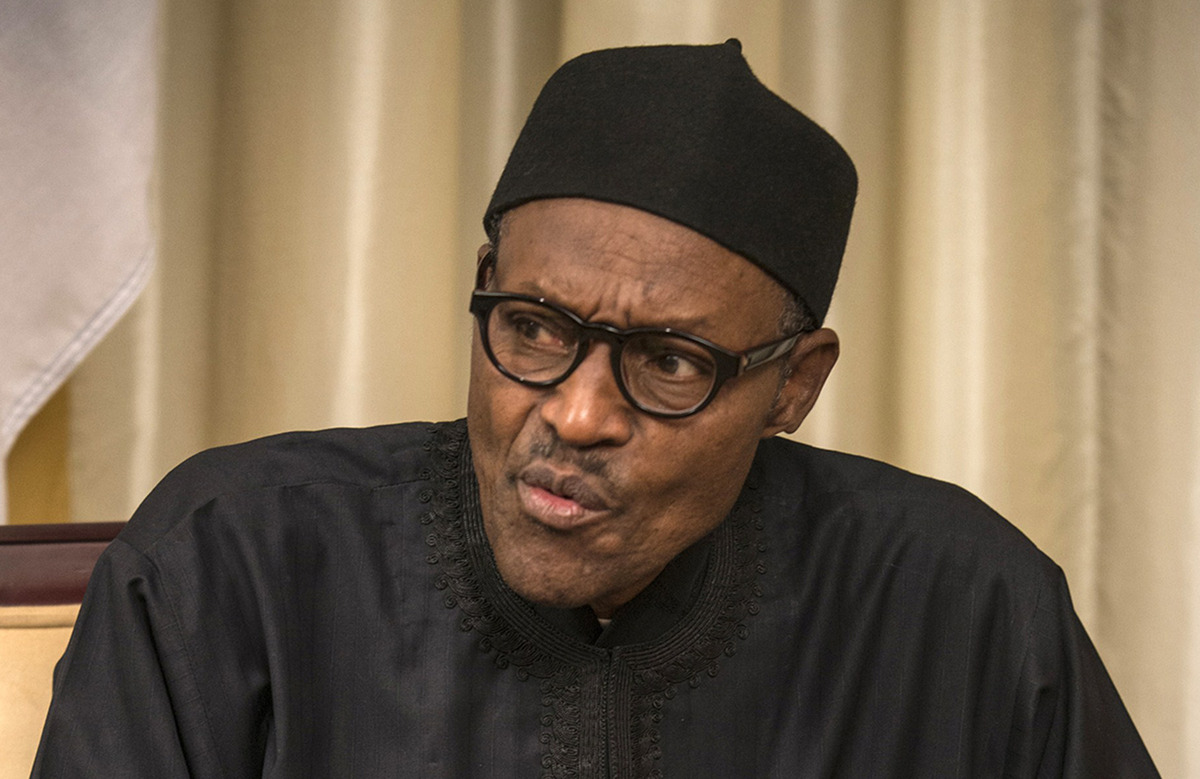
By SUNDAY ODIBASHI
THE Town Hall meeting organized by Ministers of the All Progressives Congress (APC)-Government across the country recently has been generating its own version of controversy in the polity.
Some stakeholders conceive the town hall meeting a desideratum for communicating government policies to citizens. Precisely, the Minister of Power, Works and Housing, Babatunde Fashola, declared the interactive forum to be “the right to know” of citizens.
Within that context, the town hall meeting then implied a process of co-opting the people, (non-state actors) into the governance system.
Some other stakeholders in the polity, however, conceived the forum as unnecessary and waste of public funds.
The common denominator in the divergent discourses is the quest of the ministers for legitimacy construction for the President Muhammadu Buhari administration. This is, particularly so, considering the glaring economic downward in the country and the seeming mix-up in the APC-Government to inject appropriate economic stimulus to re-activate the production capacity and competitive distribution chain of the domestic economy towards check-mating the perpendicularly sliding socio-economic indicators. The ministers somewhat trivialized the town hall meeting which commenced in Lagos last week with their inability to draw demarcation line between politicking and governance. Most of the ministers used the forum to further make excuses why certain policies are still going wrong, raising skepticism over the goodwill of the administration.
At the Lagos town hall meeting, Lai Mohammed, Minister of Information and Culture, had said that bringing the officials of government in direct contact with the representatives of people from all walks of life to discuss issues affecting the polity is the best form of participatory democracy.
ALSO SEE: Buhari to oil pipeline vandals: A memo of misunderstanding?
He accordingly declared that “this will not only ensure that the government hears directly from the people on how its decisions affect them, but will ensure that we carry the people along in the efforts we are making to keep our electoral promises, enthrone good governance and make life abundant for all Nigerians.”
The Information Minister highlighted that APC campaign promises are based on tackling corruption, ensuring security of lives and property and the economy.
Some stakeholders contended that Lai Mohammed covertly indicated himself, seemingly admitting his incompetence to manage governance communications.
Speaking to National Daily in Lagos, an elder statesman and advocate of good governance, Dr. Moses Iloh, said that the town hall meeting was irrelevant. He was of the view that the town hall meeting was an indication that the Minister of Information has failed in his duty to communicate government policies. “Lai Mohammed was better being the National Publicity of the APC than being Minister of Information,” Iloh declared.
Iloh admonished that the ministers should not beguile President Buhari into believing that the country is working, adding that government should not be reduced to debating club.
The elder statesman reiterated his support for Buhari. He maintained that the President means well for Nigerians, but decried that Buhari is being sabotaged by people around him.
Universally, consolidating the legitimacy of government, after a general election, through such platform appears too simplistic. More so, participants at such conversation are usually preponderantly members of the party in government.
Legitimacy construction is often more effective through wide deliberation of public policies by variety of stakeholders in the public space; not a one day assemblage of party loyalists and friends of managers of power.
The prevailing socio-economic crisis simply indicates the APC-Government requires internal review mechanisms, particularly, overall policy review on the appropriate stimulus to revive the economy. That the economy made downward slide is an indication that the status quo has been altered and change has began.
The current administration has to contend with the latest International Monetary Fund (IMF) Report which indicates that Nigeria dropped from being one of the fastest growing economies in the world to below 15 economies in Africa. According to a report by by CNNMoney, “Having enjoyed blissful growth over the past decade, Nigeria was one of the fastest growing economies in the world, but it is not one of the 15 fastest growing economies in Africa for 2016.”
ALSO SEE: Soyinka says Buhari’s silence encourages Fulani herdsmen’s violence
It was indicated that in 2014 and early 2015, Nigeria was named the third fastest growing economy in the world, with China and Qatar, taking the lead at 7.3 percent, 7.1 per cent gross domestic product (GDP) growth.
Following the 2015 election uncertainty, crash in crude oil price, and prolonged revelation of policy direction by the Buhari administration, Nigeria’s GDP for 2015 crashed to 2.8 per cent, the Agency had reported.
“For 2016, however, the coast is cloudy, and Nigeria is nowhere near the fastest growing economies in Africa,” it was declared.
It was stated that the International Monetary Funds (IMF) World Economic Outlook for 2016, as revised in April, indicated that the fastest growing economy in Africa for 2016 is Cote d’Ivoire and the slowest is Chad, which is expected to record negative growth.
Statistics of Country Projected Growth Rank shows the fastest growing economies in Africa by GDP growth rate, as projected by IMF for 2016, are: Cote D’Ivoire (8.5%), Tanzania (6.9%), Senegal (6.6%), Djibouti (6.5%), Rwanda (6.3%), Kenya (6.0%), Mozambique (6.0%), Central African Republic (5.7%), Sierra Leone (5.3%) and Uganda (5.3%).
the IMF projection further shows that DR Congo expects a GDP growth of 4.9 percent; Cameroon 4.9 percent; Ethiopia 4.5 percent; Ghana 4.5 percent; and Republic of Congo; 4.4 percent.
Madagascar, Zambia and Chad are expected to see a growth of 4.1 percent, 3.4 percent, 3.2 percent, respectively, according to the report.
It was indicated that major oil exporters, Angola and Nigeria, are projected to see a growth 2.5 and 2.3 percent.
Even at the time Nigeria was projected the fastest growing economy in Africa, the economy recorded astronomical growth without development. The economy has been preponderantly import based, culminating into increasing unemployment, poverty, fall in currency exchange and crime.
You may like
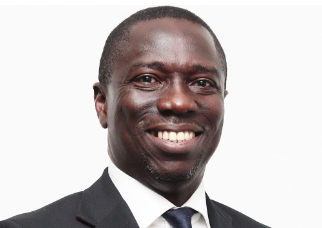

Ighodalo confident in Judiciary as He challenges Edo Governorship election results
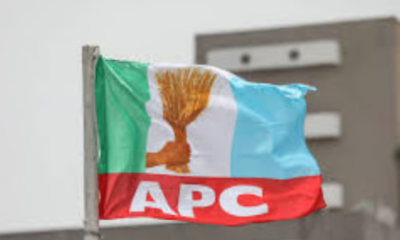

INEC Refutes APC claims of BVAS smuggling in Edo Governorship Election
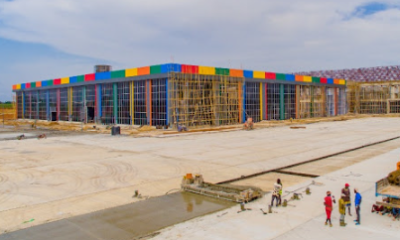

Flight operations at Ebonyi’s Chuba Okadigbo Airport set to begin in November
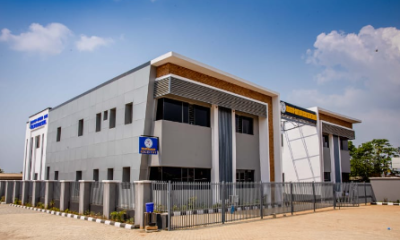

Igbogbo-Baiyeku LCDA inaugurates new legislative building
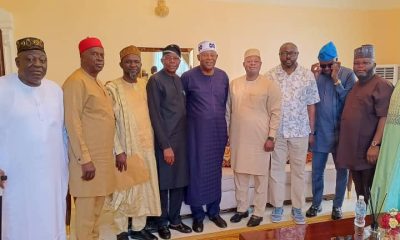

Faleke meets APC State Chairmen
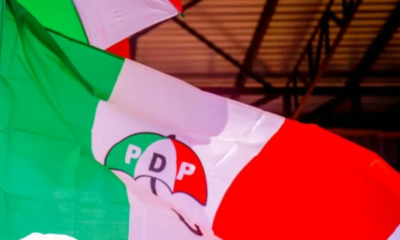

PDP slams APC over criticism of NSE visit to Osun State
Trending

 Entertainment1 week ago
Entertainment1 week agoSinger Simi faces backlash after TikToker admits to false rape allegation

 Entertainment5 days ago
Entertainment5 days agoSimi addresses resurfaced 2012 tweets amid online backlash

 Comments and Issues1 week ago
Comments and Issues1 week agoNigeria’s Declining Oil Output and Soaring Foreign Portfolio Investment Inflow

 Comments and Issues1 week ago
Comments and Issues1 week agoEx-prince Andrew’s arrest, lessons for Nigeria

 Comments and Issues1 week ago
Comments and Issues1 week agoThe Seyi Tinubu’s jellof rice, loaves of bread

 Health7 days ago
Health7 days agoSCFN, LUTH introduce bone marrow transplants as curative treatment for sickle cell

 Health3 days ago
Health3 days agoDeclassified CIA memo explored concealing mind-control drugs in vaccines

 Football7 days ago
Football7 days agoHarry Kane nets brace as Bayern edge Frankfurt 3–2 to go nine points clear

